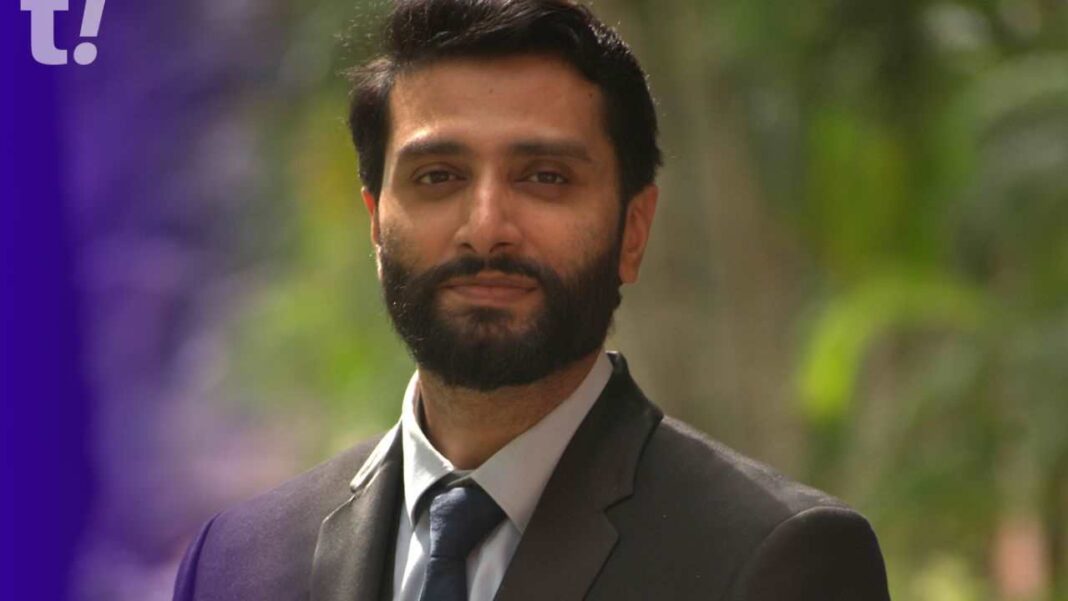In an interview with TechGraph, Dr. Shantanu Trivedi highlights UPES CCE’s commitment to industry relevance, accessibility, and high-quality programs for learners of all backgrounds.
Read the complete interview:
TechGraph: How does UPES CCE ensure that its courses are relevant and up-to-date with the latest industry trends and requirements?
Dr. Shantanu Trivedi: UPES CCE offers a futuristic curriculum that emphasizes current skills but also anticipates future demands. In today’s rapidly changing times, it is crucial to possess an up-to-date skill set aligned with the latest industry trends. Our PGP in renewable energy is particularly popular, attracting individuals from diverse domains. These individuals seek to grasp the significance and potential of this technology as it represents the future.
Moreover, our course offerings extend to other industries like Oil and Gas, where we impart knowledge of cutting-edge technologies such as Carbon Capture and Storage. Recognized as the most in-demand skill in today’s market, we ensure our students develop a comprehensive understanding of this technology, equipping them to navigate the future successfully. At UPES CCE, our courses are thoughtfully designed to empower students with the skills necessary to remain relevant in their respective industries and excel in their careers.
TechGraph: Can you help us understand how UPES CCE is making education more accessible to learners who face socioeconomic barriers to education?
Dr. Shantanu Trivedi: At UPES CCE, we firmly believe in equal access to quality education, irrespective of socioeconomic background. To enhance accessibility, we have implemented a range of scholarships and flexible financing options for our programs. We recognize that financial assistance may be necessary for some students, and we are dedicated to extending support wherever we can.
Moreover, we provide mentorship programs tailored for high-achieving students, offering guidance to help them overcome educational challenges and unlock their full potential. Additionally, we understand the financial constraints that learners may face, and we offer flexible payment options on a case-by-case basis to help them manage the costs associated with education. Our ultimate objective is to ensure that every learner has the opportunity to pursue education. This will empower them to succeed and accomplish their career aspirations, regardless of their financial circumstances.
TechGraph: UPES CCE also offers customized training programs for corporates and organizations. How does UPES CCE work with these entities to develop training programs that meet their specific needs and requirements?
Dr. Shantanu Trivedi: At UPES CCE, we are committed to expanding our horizons and continuously updating our courses to stay ahead of the curve. We aim to be a growth catalyst for our students while being futuristic, transformative, and empathetic. To further this vision, we are constantly working towards introducing updated industry-relevant certifications and dual certifications for hybrid skill sets.
We have many exciting courses in the pipeline that cater to emerging and futuristic fields like Artificial Intelligence, Machine Learning, Blockchain, and Cybersecurity. Our focus is on providing our students with the latest knowledge and skills in high demand in the industry.
Furthermore, UPES training programs follow a meticulous process that includes consultations, curriculum development, and training delivery. By collaborating closely with the client organization and leveraging UPES professionals’ expertise, these programs ensure that participants receive high-quality training that directly addresses their needs and enhances their professional capabilities. We believe that our efforts will contribute to India’s vision of becoming a knowledge economy by producing a skilled workforce that can compete globally and drive innovation in various industries.
TechGraph: How does UPES CCE ensure that the programs and courses are of high quality and meet industry and academic standards? What measures does the center take to assess the effectiveness and impact of its programs on learners and their careers?
Dr. Shantanu Trivedi: UPES CCE ensures that the programs and courses are of high quality and meet industry and academic standards by following a rigorous curriculum design process. Before launching any program, we conduct thorough research on the industry’s needs and collaborate with industry experts to design industry-aligned and integrated curriculums that meet industry standards. Our programs also undergo periodic reviews to ensure that they remain relevant and relevant to the changing industry landscape.
To assess the effectiveness and impact of our programs on learners and their careers, we have a robust feedback mechanism in place. We collect feedback from learners during and after the program completion, which helps us evaluate the program’s effectiveness in terms of knowledge gained and skills developed.
Additionally, we track the placement and career growth of our learners to assess the impact of our programs on their careers. We also have a dedicated career services team to mentor our learners. Our approach to employability training involves providing LinkedIn certifications and career counseling through live masterclasses conducted by industry experts. This ensures that our students are equipped with the necessary skills and knowledge to succeed in their current and future roles, ranging from job search strategies and networking to personal branding and professional development.
Furthermore, we obtain industry certifications for our programs to ensure they meet industry standards and provide learners with a competitive advantage in the job market. We also provide learners with dual certifications for hybrid skill sets, which enhances their employability in diverse domains. Overall, our focus on quality, industry relevance, and learner outcomes helps us ensure high standards. We also ensure that they make a significant impact on learners’ careers.




